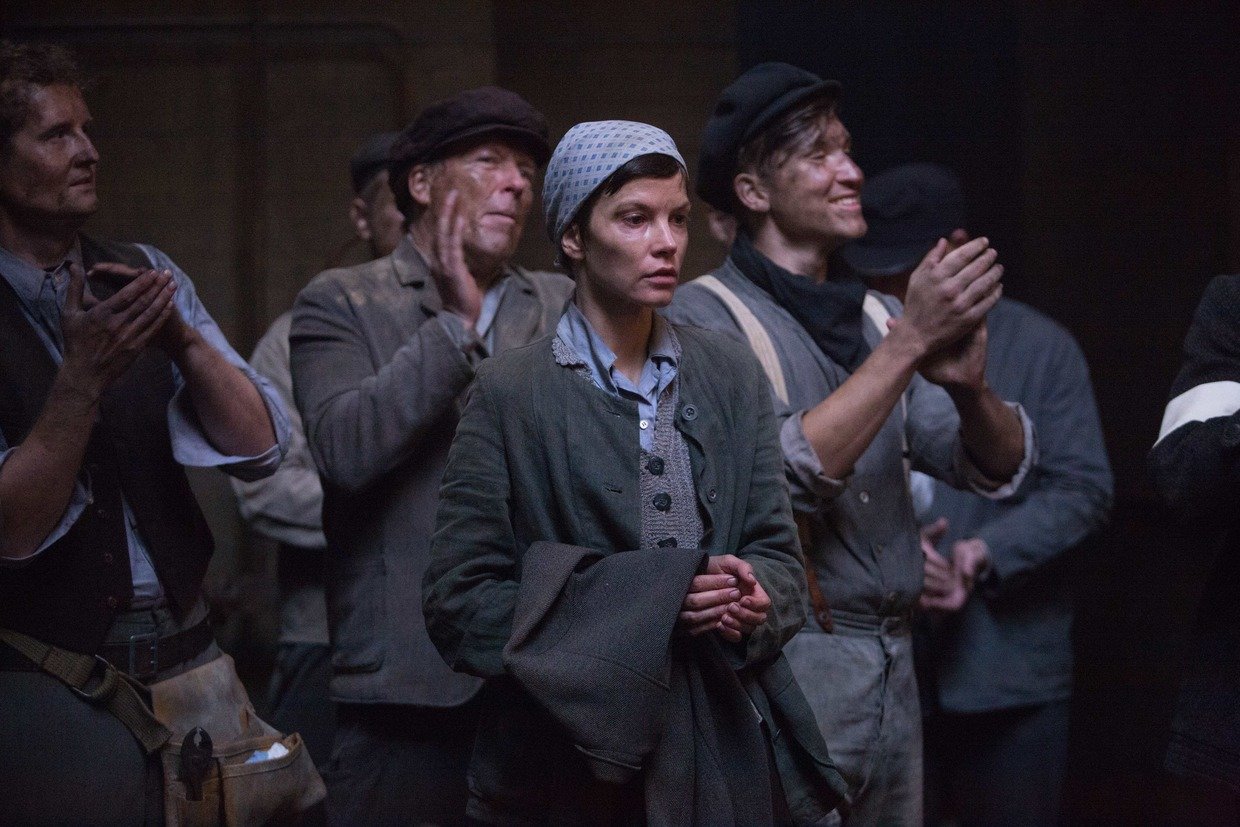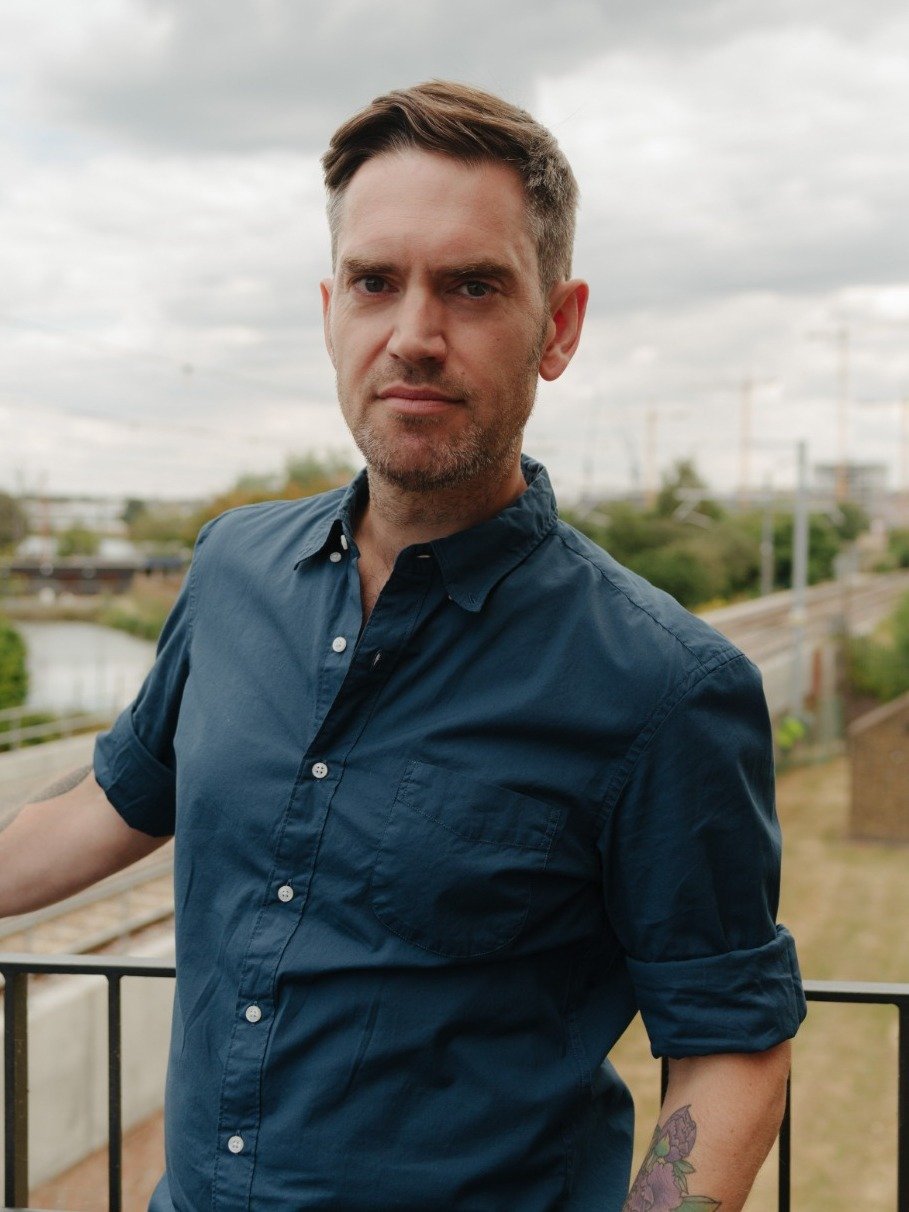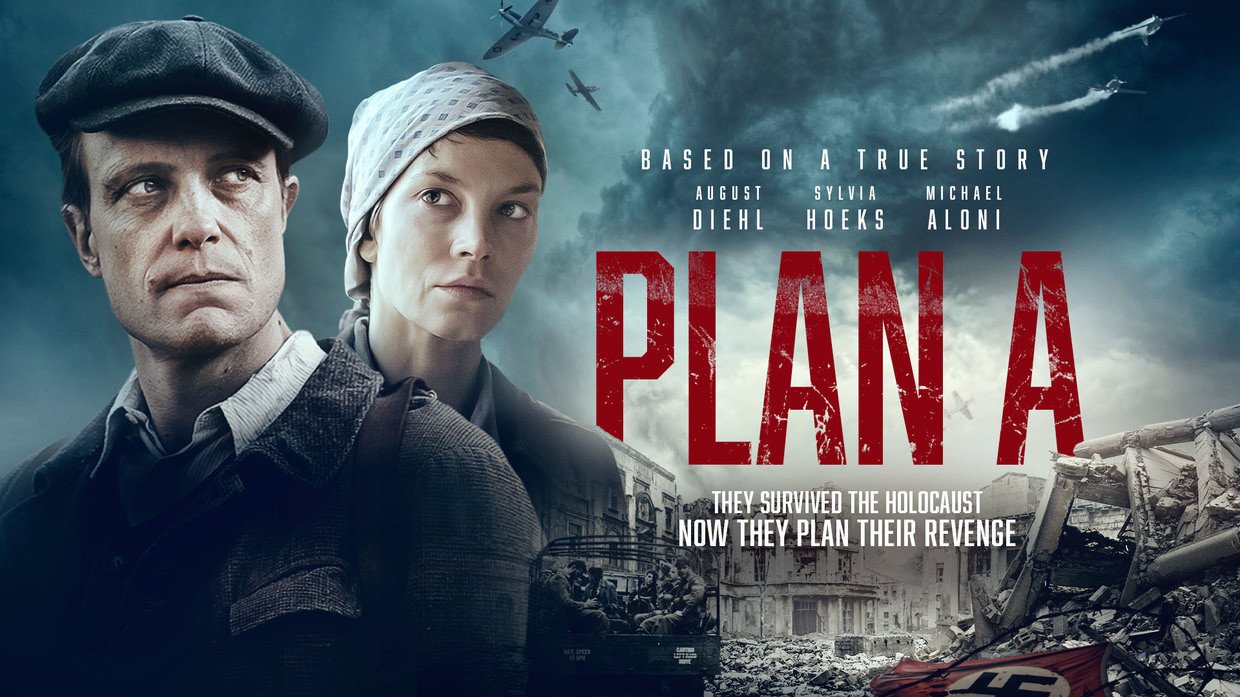A new film, Plan A, recreates how a group of Jews plotted shortly after the end of the Second World War to kill millions of Germans in revenge for the Holocaust. Here’s the incredible true story behind it.
Revenge, they say, is a dish best served cold. But in 1945, a group of Jewish Holocaust survivors plotted a vast and horrific vengeance fuelled by a burning sense of injustice and hatred. Taking direction from the ancient edict of ‘an eye for an eye’, the group, known as Nakam or ‘the Avengers’, planned to kill six million German citizens by poisoning their water supplies – an act of mass murder that, if it had succeeded, might have ended the state of Israel before it had even been created.
A new film, ‘Plan A’, is a dramatic telling of this plot, using a blend of real and fictional characters, but very much ‘based on a true story’. A truly remarkable story that has until recent years been under-told – a situation that stunned the film’s directors, brothers Yoav and Doron Paz.
“It blew my mind because growing up in Israel, we never heard these stories,” Yoav Paz tells me. “I think there’s a couple of reasons. One is that, for many years, the Avengers themselves didn't want to talk about it. They knew how it sounds today, how horrible it sounds to people. Then 10 years ago or so they started. I think they felt the need to talk about it before they passed away.”
Before we get to the meat of the plot, it’s best to set the scene.
When the Second World War ended and the Nazi concentration camps were emptied, Europe’s Jews, minus the six million who had been murdered, weren’t magically returned to their previous lives. Their property had been taken from them and the beneficiaries of this theft were loath to give up their ill-gotten gains. The widespread anti-Semitism across Europe that had fuelled and facilitated Hitler’s rise hadn’t gone away, either. Having escaped hell, they made it only as far as purgatory.
A thirst for vengeance was common, but so were weariness and weakness brought on by the atrocities. Some of those who hoped to move on, literally and psychologically, travelled to a pre-Israel Palestine, then called Mandatory Palestine and under British rule – though this journey wasn’t available to all. Many attempted to rebuild their lives in Europe or North America.
But for some Jews, revenge was a must.

Although Jewish men had fought for various Allied nations in the war, they hadn’t had a definable force of their own until near its conclusion, when the Jewish Brigade was formed as part of the British Army. Led by both Jewish and non-Jewish officers – and featuring many soldiers from Mandatory Palestine who had remained relatively sheltered from the horrors – the brigade saw little frontline action, but a small number within it developed a reputation for ruthless retribution.
They began to summarily execute captured German soldiers, particularly those in the SS. They then handed out the same punishment, even after the war, to civilians, again mostly former SS, whom they deemed guilty of war crimes. Paz and his brother address this early in the film, including a gruesome montage of ordinary-looking men and women being dispatched with a single bullet to the head.
“The Jewish Brigade [in the film] is very accurate,” he says. “These soldiers from Israel, who were strong, fearless – nothing like the Jews that survived the Holocaust physically and mentally. They came to Europe in the last days of the war so they didn't have any real fighting. So a small, secret group – I think it was 200 or maybe a bit more – took on these operations.
“They went on secret operations at night on the Austrian border, mostly, and the north of Italy. They were hunting down war criminals, double-checking the info – they got some information from the British intelligence, some of their own. You could have a whole TV show just on the Jewish Brigade.”
We can view the brigade as sitting at a particular point on a ‘revenge spectrum’. Young men, many of whom were only now discovering the barely conceivable acts carried out against human beings simply for their religion, who felt impotent having been unable to fight against the perpetrators until everything was all but over. They wanted justice against those who could be proved – to their satisfaction – guilty.
Also on rt.com ‘Never Forget’ means facing history, not erasing it. If we can’t handle statues, we’re helpless against living, breathing fascistsFor the Avengers, though, all Germans were guilty. At best they had conspired or complied with arguably the vilest regime in the history of humanity. Turning a blind eye to the Holocaust was no defence.
“I saw it in the eyes of those who were executed, that they called for revenge,” Yehuda Maimon, a Polish Auschwitz survivor and Avenger, told the Channel 4 documentary, Holocaust: The Revenge Plot, in 2017. “I didn’t need to philosophise it, revenge was my basic right.”
Their terrible plan was hatched. Plans, actually: Plan A was to poison the water supply, killing millions. Six million they hoped. An eye for an eye. Plan B was to poison thousands of former SS soldiers held prisoner in US POW camps. Directed from Nakam’s Paris headquarters, cells around Germany got to work on the former.
“I thought, just as they killed our children, we can kill theirs,” said Maimon.
Their leader, the poet and resistance fighter Abba Kovner, one of the few real people portrayed in ‘Plan A’, approached the Jewish Brigade for help but was rebuffed. Not only was their version of justice seen as too brutal, but international talks were well underway to form a Jewish state where this oppressed, hounded and slaughtered people could live in safety: An act of savagery on this scale, many believed, could end that conversation.
Nakam chose Nuremberg as a target due to its infamous role in the rise of Nazism and its housing of the post-war trials that, in their view, were insufficient in scale. The filmmakers chose to base their film in the city, not only for these reasons, but because it was here that the group came closest to achieving its goal.
“We decided to concentrate on the Nuremberg cell because they went deepest into the plan,” says Paz. “They had people working undercover in the water system and in the sewer system, just waiting for the poison to arrive.”
The plan obviously failed – not even the most censorious of governments could keep the deaths of six million people from the history books. Kovner, who had obtained some poison in Mandatory Palestine, but only enough for Plan B, was arrested by the British on his way back to Europe. He ditched half of the poison overboard with the other half being taken to Paris by a friend.
Also on rt.com Have we forgotten Nuremberg? Real justice would see Western leaders who start wars end up in jail too, not just Radovan KaradzicPlan A was averted, so they moved to Plan B – and this was carried out.
Its targets were far more specific and, some would argue, more just. Attention turned to the POW camps housing SS prisoners near Nakam cells in Nuremberg and Dachau. These cells were kept active, with all other members of Nakam placed on standby.
The plan was to literally serve revenge as a cold dish, by adding poison to loaves of bread that would be fed only to prisoners. As Kovner had lost half of the poison he’d obtained in Mandatory Palestine, there wasn’t enough even for this scaled-down effort and so a flavourless, odourless arsenic-based toxin was developed in Paris.
The Dachau mission was aborted after it emerged that cell members were wanted by the police. However, on April 13, 1946, Nakam members who had found work at the bakery that supplied the Stalag 13 POW camp at Langwasser, near Nuremberg, succeeded in infecting 2,283 German prisoners via 3,000 loaves before escaping to Czechoslovakia with the help of Maimon.
In another twist to this tale, there were no reported deaths – something that has never been adequately explained. Indeed, a declassified US report recently found by the Associated Press showed that there was enough arsenic in the camp to kill 60,000 men.
“Some of [the Avengers] said that they managed to kill war criminals, but the American forces kept it down because they didn't want to raise panic,” says Paz. “But historians are still divided on this subject. Some say they succeeded in small amounts, some say they didn't succeed at all. But when we were talking to [former Nakam members] all of them said that they felt sorry to this day that plan B was not effective. Because for them, Plan B is pure, pure justice. All of them were SS soldiers, Nazi soldiers that were supposed to die. Regarding Plan A, it's much more complicated.”
That complexity caused disagreement among Nakam members at the time. Many quit over the scale of Plan A, thinking it far too bloodthirsty an act of vengeance, even for something as inhuman and unthinkable as the Holocaust. Some, though, had no qualms.
In 2016, Joseph Harmatz, then aged 91 and one of the few then-surviving Avengers, spoke to the Associated Press about the plots – his words suggesting that he may still have rued both missions’ failures.
“We didn’t want to come back [to pre-state Israel] without having done something, and that is why we were keen,” he said. “We didn’t understand why it shouldn’t be paid back.”
Asked what the group’s mission was, Harmatz, who lost most of his family in the Holocaust and was part of the Nuremberg poisoning, replied, “Kill Germans… As many as possible.”
Maimom also spoke to AP. Then aged 92, he too felt no guilt.
“It was imperative to form this group,” he said. “If I am proud of something it is that I belonged to this group. Heaven forbid if after the war we had just gone back to the routine without thinking about paying those bastards back. It would have been awful not to respond to those animals.”
We should be happy that their story is one of ‘what ifs’, at least when it came to Plan A. The people of modern Israel, where Harmatz came to live, should be especially relieved. Paz believes that had the plan succeeded, the country almost certainly wouldn’t exist in its current form.
“I think [Plan A] was horrible,” he says. “I think it was a terrible thing. The UN made Israel a country because of what people had been through, because of the Holocaust, because they understood that we need a safe place for our own. I think if even hundreds or thousands of innocent German kids and families were lost because of this operation, it could have jeopardised everything. I think it would have poisoned the foundations of this state.”
German authorities investigated Harmatz and Leipke Distal, who worked undercover in the bakery, after they revealed their actions in interviews for a 1995 documentary. Understandably, officials weren’t keen to prosecute Holocaust survivors for trying to exact revenge on Nazis and decided against filing charges because of the “extraordinary circumstances”.
So how to remember the Avengers? How to judge dead men and women when none was judged in a court of law? Some people consider them terrorists, others heroes; most will have views somewhere between these two extremes.
A discussion of whether their aims and methods were justifiable or understandable is a moral maze. Revenge is not only an instinct but one that has formed the basis of legal punishment for millennia – even if it’s not always ‘an eye for an eye’, we are supposed to pay for our crimes. Murder, though, is always hard to justify – even that of murderers themselves.
“What we try to throw to the audience is,‘If you were in these people's shoes, if you lost everything, what power would control you?’” says Paz. “Would it be the power to start over, to go on with your life, or the power that will sink you? Revenge is a vicious thing and it still drives the world around us.
“Even in today's modern Israel, these vicious circles between Israel and the Palestinians, where each side cannot move on because the other side did this or that. You can find it in all conflict areas, that people unfortunately cannot forget the past and cannot move on because revenge is such a primal thing.”
Also on rt.com Zizek: Labeling BDS ‘anti-Semitic’ desecrates the Holocaust in order to legitimize apartheidHarmatz, in the Channel 4 documentary, explains this trap perfectly, while reminding us that it’s impossible for any of us to, as Paz says, put ourselves in these people’s shoes. Speaking of the Holocaust, of witnessing the murders of men, women, children and babies, of having to bury their mutilated bodies, he said:
“When you have seen it with your own eyes then it invades you so deeply that, even if you want to break free from it, you can’t break free.”
Editor's note: RT has switched off the comments section for this article due to some users’ offensive language.
Like this story? Share it with a friend!
The statements, views and opinions expressed in this column are solely those of the author and do not necessarily represent those of RT.



